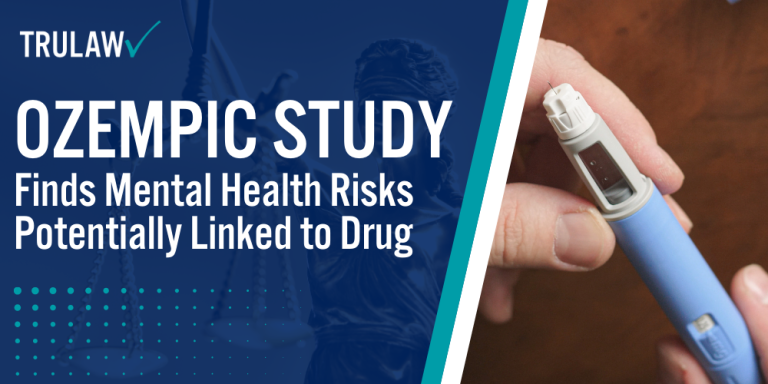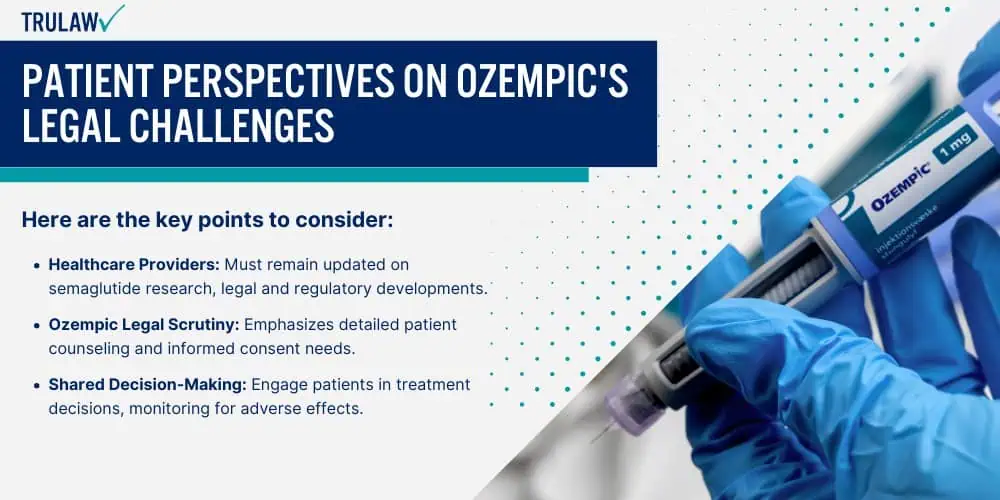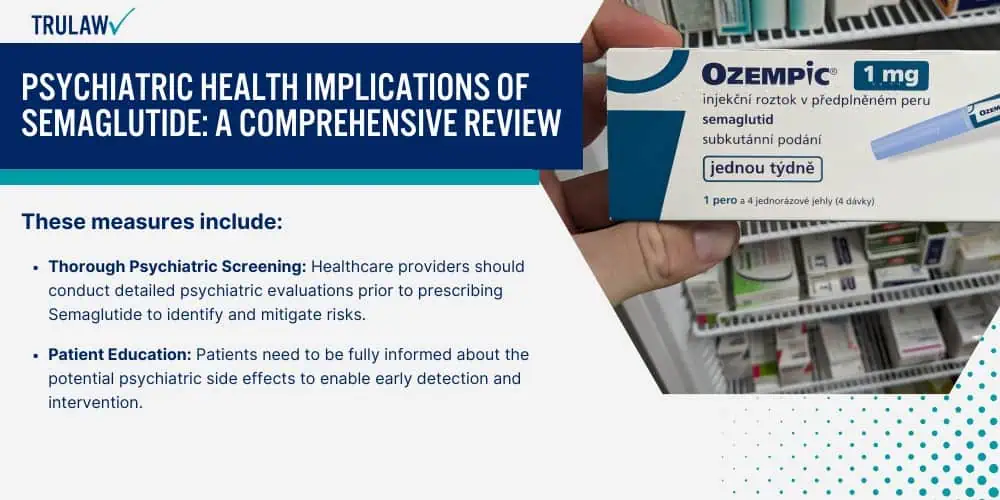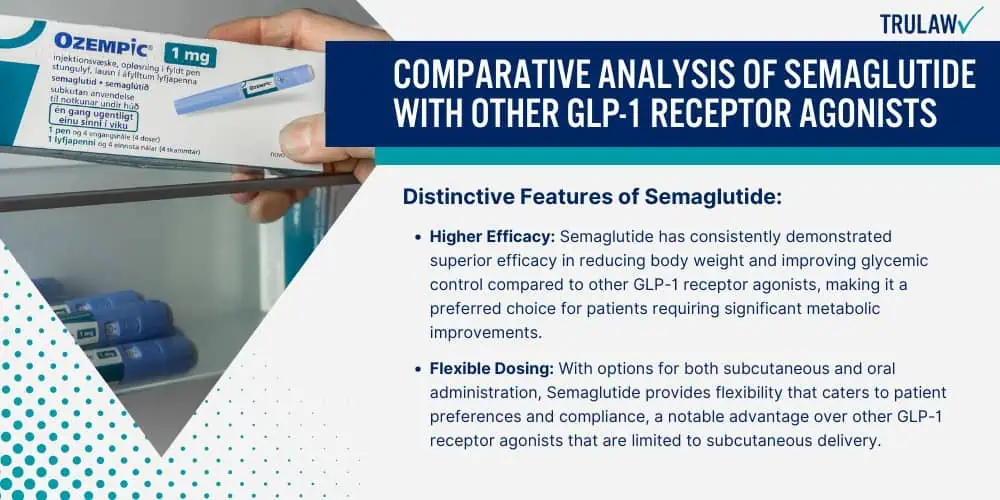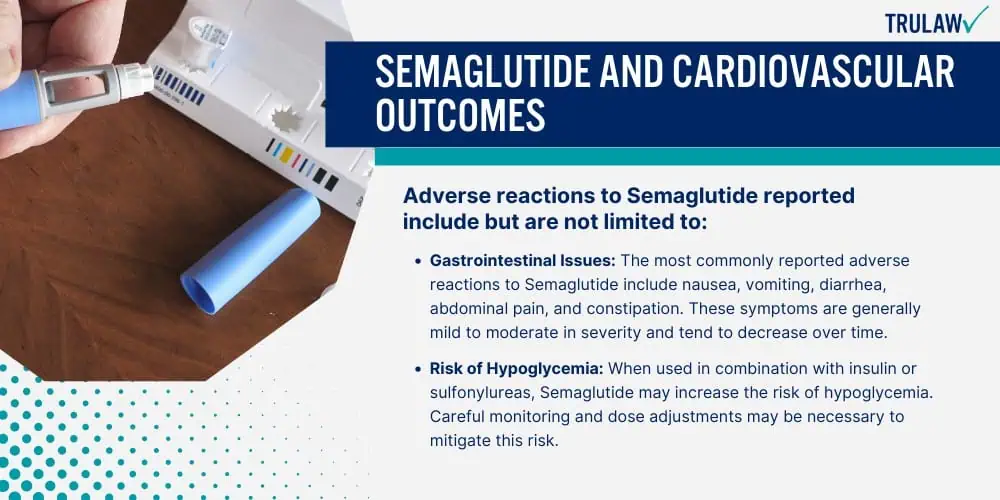The landscape of semaglutide, the active ingredient in Ozempic, is under intense scrutiny due to several lawsuits alleging insufficient warning about potential severe side effects.
This legal scrutiny comes amid rising concerns over the drug’s widespread use, prompted by its popularity on social media platforms for off-label weight loss purposes beyond its primary indication for Type 2 diabetes management.
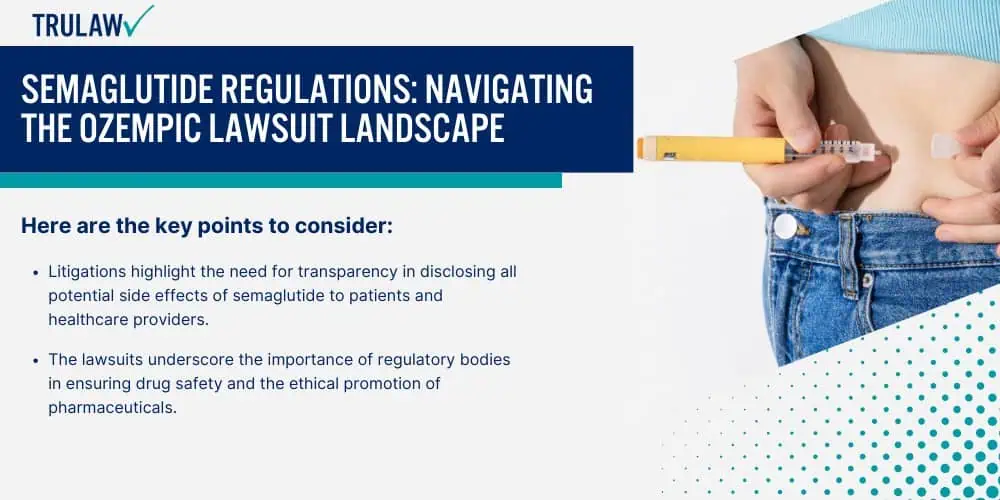
The Legal Battle: Unpacking the Ozempic Lawsuits
The heart of the legal battle against Ozempic revolves around allegations that the manufacturer, Novo Nordisk, failed to provide adequate warnings about the drug’s potential to cause serious side effects.
Lawsuits claim that patients were not fully informed about the risks associated with semaglutide, leading to calls for better regulation and accountability in pharmaceutical advertising and prescription practices.
Here are the key points to consider:
- Litigations highlight the need for transparency in disclosing all potential side effects of semaglutide to patients and healthcare providers.
- The lawsuits underscore the importance of regulatory bodies in ensuring drug safety and the ethical promotion of pharmaceuticals.
- They also emphasize the role of healthcare providers in discussing the benefits and risks of medications like Ozempic with their patients, ensuring informed decision-making.
Regulatory Responses and Recommendations
In response to these legal and health concerns, regulatory bodies are being urged to take stronger actions to ensure the safe use of semaglutide.
Recommendations for regulatory actions include stricter guidelines on pharmaceutical advertising, enhanced surveillance of drug side effects, and more rigorous requirements for patient education on medication risks and benefits.
The critical insights from this evolving situation include:
- A pressing need for updated regulatory guidelines that address the current landscape of drug promotion and prescription, especially in the digital age.
- Enhancing patient education and informed consent processes is crucial to safeguard patient health and autonomy.
- Ongoing research and post-marketing surveillance can be mandated to assess the safety profile of semaglutide continually.
Forward-Looking Strategies: Ensuring Patient Safety and Informed Use
As the legal proceedings unfold, it is imperative for all stakeholders, including pharmaceutical companies, healthcare providers, regulatory bodies, and patients, to collaborate in promoting the safe and informed use of semaglutide.
The following strategies can be used to address these challenges:
- Implementing stricter advertising regulations to prevent the promotion of off-label drug use may mislead patients about the safety and efficacy of medications like Ozempic.
- Enhancing the transparency and accessibility of information on medication risks and benefits, enabling patients to make informed healthcare decisions.
- Strengthening the role of healthcare providers in patient education, ensuring that discussions about drug choices include a comprehensive overview of potential side effects.
- Encouraging the development of more detailed patient information leaflets and consent forms that clearly communicate the risks associated with semaglutide.
- Advocating for ongoing post-marketing studies and surveillance to monitor the long-term effects of semaglutide on patient health.
- Promoting patient advocacy and support groups to provide resources and support for individuals experiencing side effects from semaglutide.
The Semaglutide Regulations and Ozempic Lawsuit narrative underscores the sophisticated relationship between pharmaceutical innovation, regulatory oversight, and the need for comprehensive patient education.
As the situation evolves, the focus remains on balancing the therapeutic benefits of semaglutide with the imperative to protect patient health through robust regulatory frameworks and informed healthcare practices.
